
John Douglas Anthony PC was an Australian politician. He served as leader of the National Party of Australia from 1971 to 1984 and was the second and longest-serving deputy prime minister,holding the position under John Gorton (1971),William McMahon (1971–1972) and Malcolm Fraser (1975–1983).
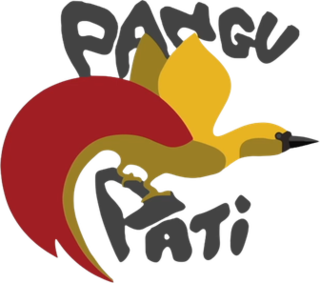
The Pangu Pati,officially Papua na Niugini Yunion Pati,is a nationalist and developmentalist political party on the centre-left in Papua New Guinea. The party is the oldest political party in Papua New Guinea and has held all levels of government throughout its history. As of 2023,it is the largest party in the National Parliament.
This is a list of members of the House of Assembly of Papua and New Guinea from 1968 to 1972. The House of Assembly had 94 members,increased from 64 in the previous House. There were 69 open electorates,15 regional electorates and ten official members. The reserved seats for non-indigenous members in the first House were not retained.
Sir Sinake Giregire was a Papua New Guinean businessman and politician.
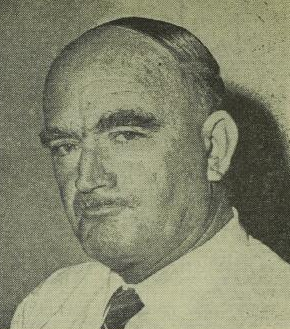
Frank Cotter Henderson was an Australian agriculturalist and public servant. He held senior positions in the government of the Territory of Papua and New Guinea and served as an official member of the Legislative Council and House of Assembly.
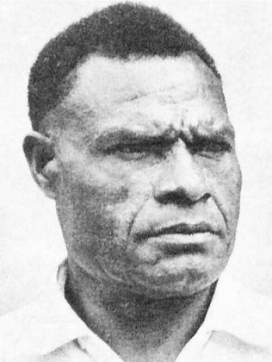
Makain Mo was a Papua New Guinean chief and politician. He served as a member of the House of Assembly between 1964 and 1968.
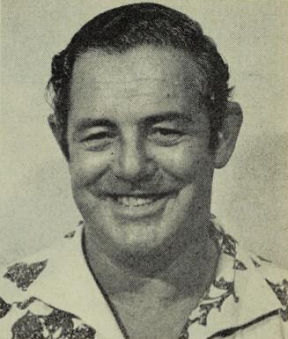
Donald Barrett was an Australian planter,army major,politician and sports coach in the Territory of Papua and New Guinea. He served as a member of the Legislative Council and House of Assembly in two spells between 1951 and 1968.

Matthias Tutanava Toliman was a Papua New Guinean politician. He served as a member of the House of Assembly between 1964 and 1973,also holding ministerial roles from 1964 until 1972.

Paulus Arek was a Papua New Guinean politician and trade unionist. He served as a member of the House of Assembly between 1968 and 1973,and as Minister for Information from 1972 to 1973.
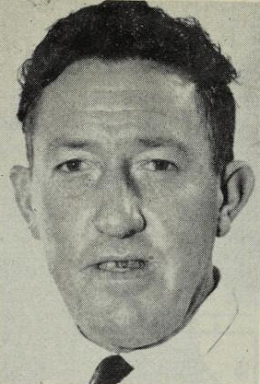
Stanley Michael Foley was an Australian public servant. He rose to become a District Commissioner in the Territory of Papua and New Guinea,also serving as an official member of the territory's House of Assembly.

Norman Frederick Evennett was a Papua New Guinean politician. He served as a member of the House of Assembly from 1968 until his death two years later.

Koriam Michael Urekit was a Papua New Guinean cargo cult leader and politician. He served as a member of the House of Assembly and National Parliament from 1964 until his death.
Oala Oala-Rarua was a Papua New Guinean educator,civil servant,trade unionist,politician and diplomat. He served as a member of the House of Assembly and Assistant Minister for the Treasury between 1968 and 1972,later becoming the first Lord Mayor of Port Moresby and High Commissioner to Australia.

Sir Percy Chatterton was an English-born Papua New Guinean educator,clergyman and politician. He served as a member of the House of Assembly from 1964 to 1972.

Ronald Thomas Dalton Neville was an Australia-born Papua New Guinean politician and businessman. He served as a member of the House of Assembly and National Parliament from 1964 to 1977.

Turi Wari was a Papua New Guinean politician. He served as a member of the House of Assembly and National Parliament from 1968 until 1977.
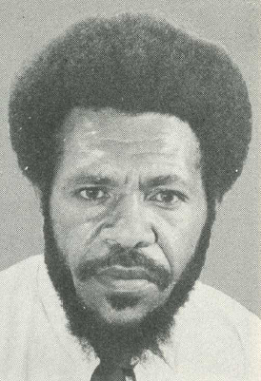
Buaki Singeri was a Papua New Guinean politician. He served as a member of the House of Assembly and National Parliament from 1972 until 1977.
Vin ToBaining was one of the first six elected indigenous members of the colonial-era Legislative Council of Papua and New Guinea,between 1961 and 1963. Subsequently,he was involved in the formation of the Pangu Party in 1967,which went on to form the government of Papua New Guinea (PNG) when the country became independent in 1975.
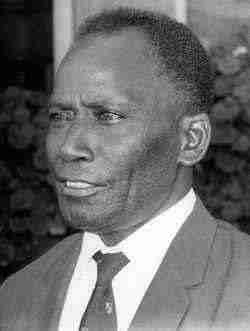
Sir Paul Lapun was a Papua New Guinean politician. Both a supporter of independence for Papua New Guinea (PNG) and of the secessionist movement on Bougainville,Lapun served in the House of Assembly of Papua and New Guinea and in the first National Parliament of Papua New Guinea between 1972 and 1975,when he was Minister for Mines and Energy. He was instrumental in obtaining royalties for the people of Bougainville for the copper mine on their island. He was the first Papua New Guinean to receive a knighthood.
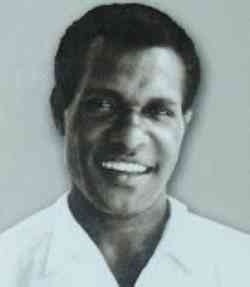
Sir Ebia Olewale (1940–2009) was a politician in Papua New Guinea (PNG). He was elected as a member of the House of Assembly of Papua and New Guinea in 1968 and went on to hold several ministerial positions during the period of self-governance and after PNG's independence in 1975,including that of deputy prime minister. He was knighted in 1983 and served as chancellor of the University of Goroka from 2000 to 2006. From 2002 until his death,he was a director of the Papua New Guinea Sustainable Development Program.
















